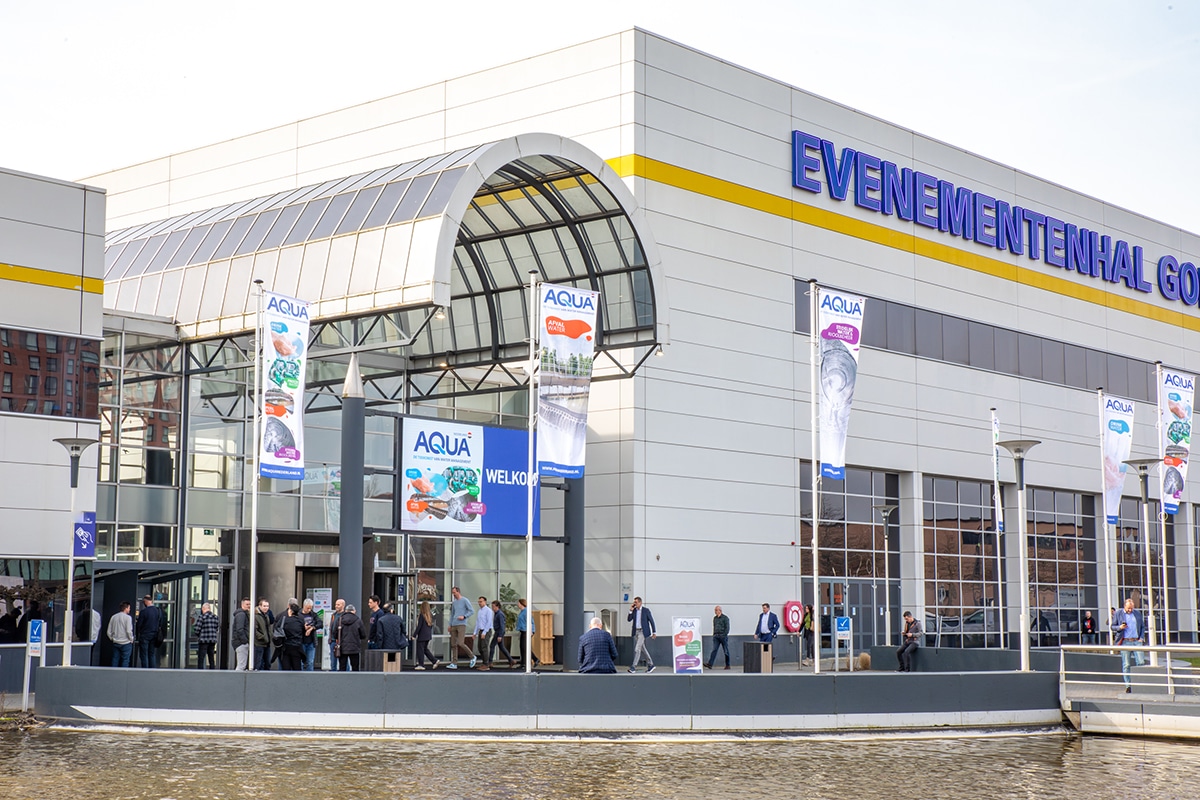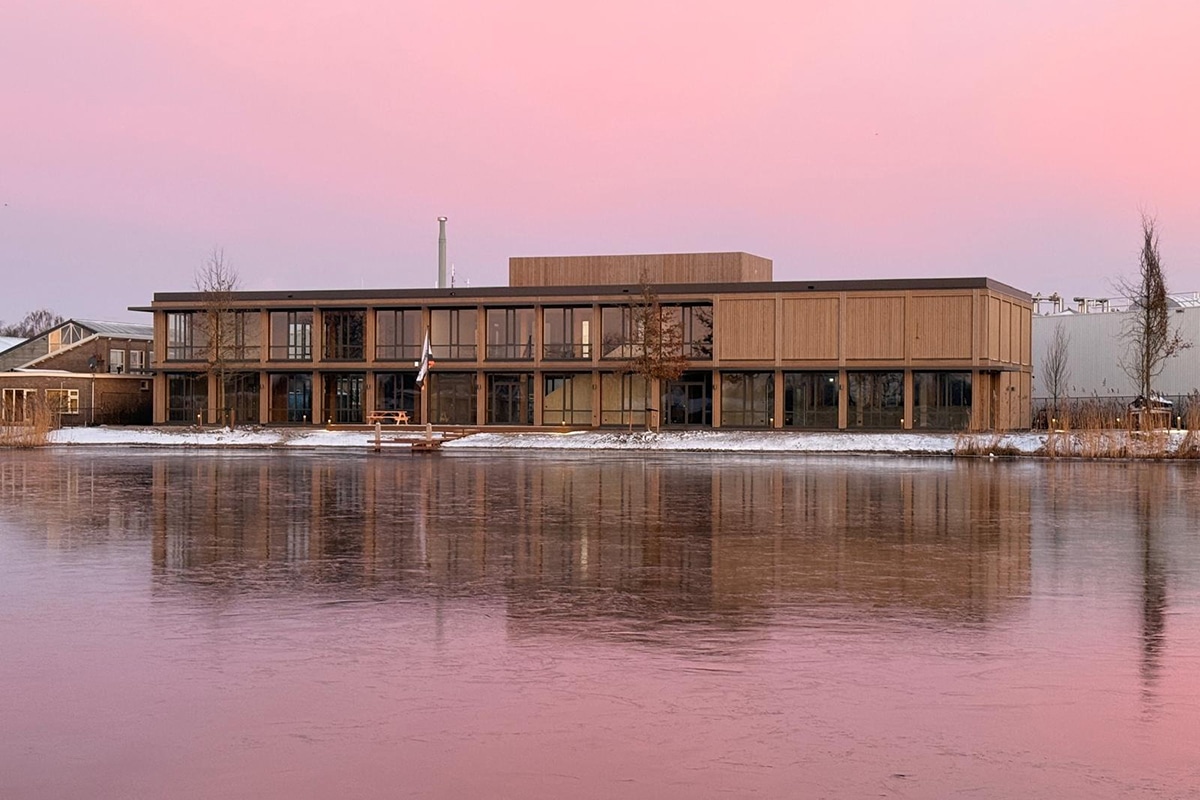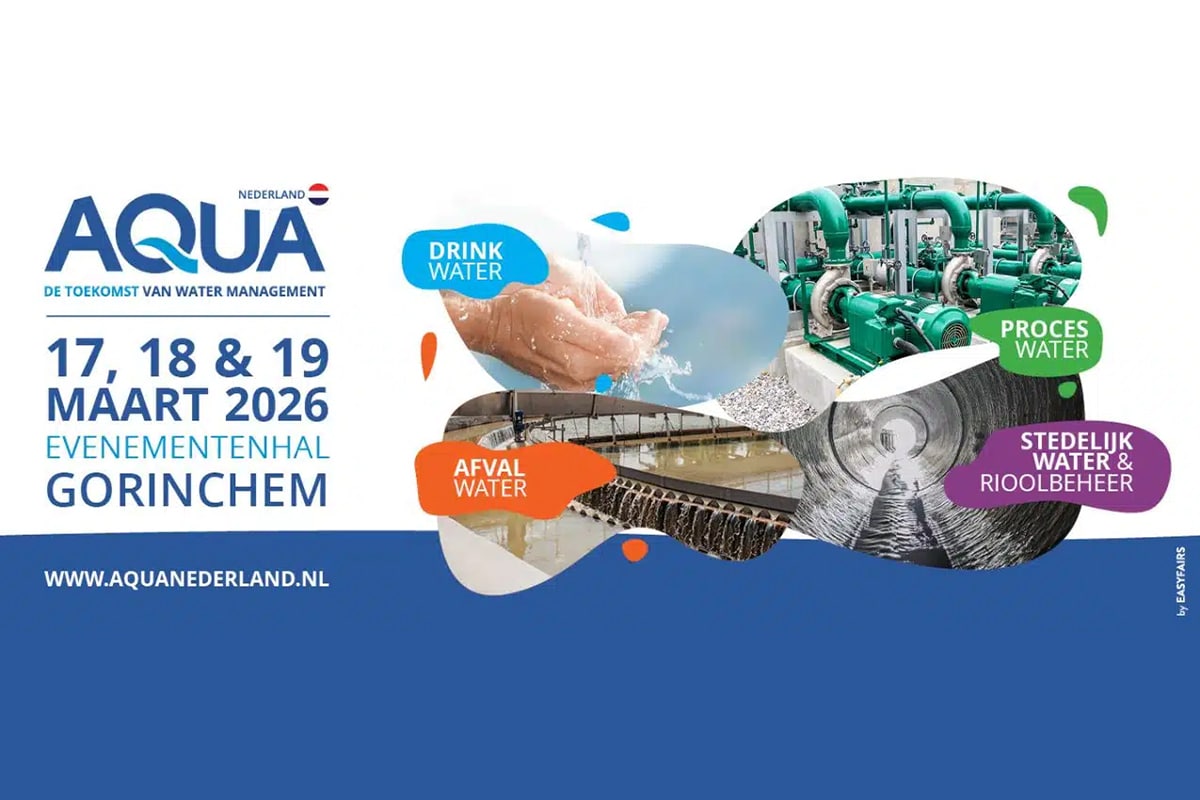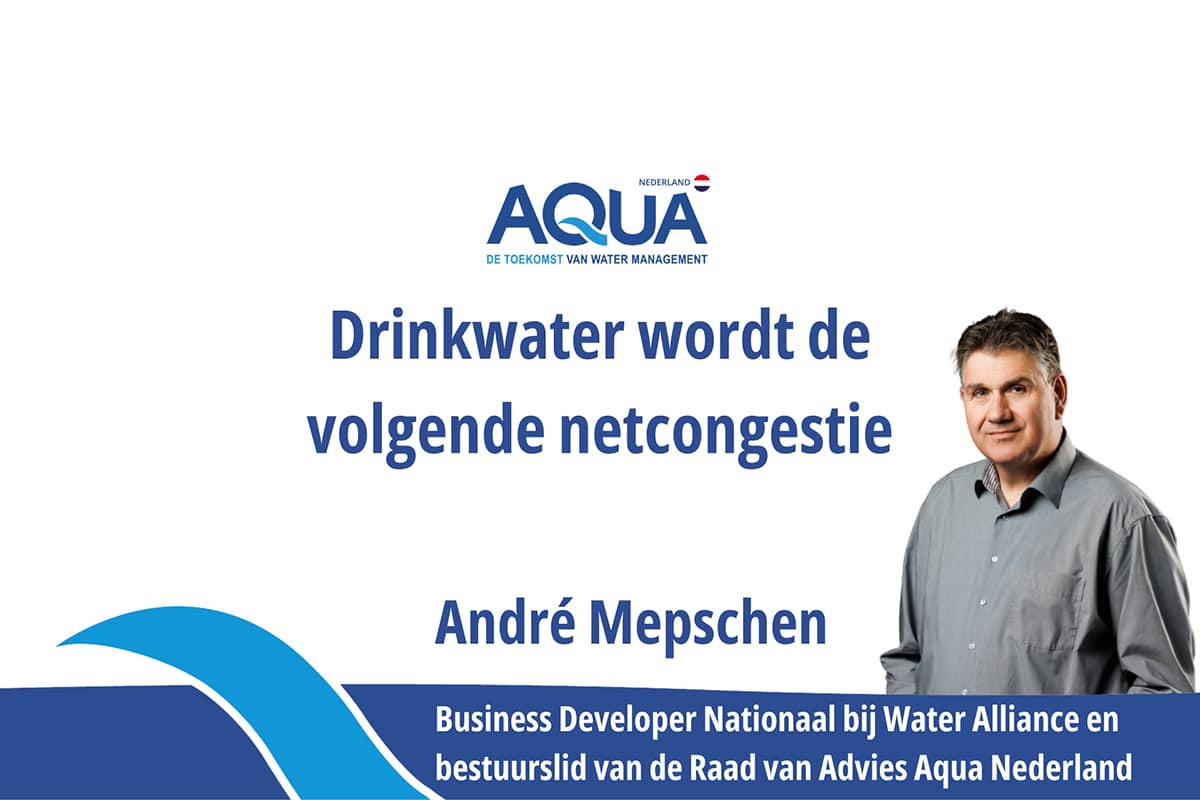
Mobilis literally lays foundation for 380 kV connection
Mast foundations for Wintrack masts between Borssele and Rilland
TenneT is laying several new 380 kV high-voltage lines in the Netherlands, including between the towns of Borssele and Rilland. BAM Infra and SWITCH Zuid-West, consisting of Mobilis B.V. and Strukton Civiel Projecten B.V., are working together on the realization of the 48 km long high-voltage line. Mark Pijnenburg, Project Manager at Mobilis, talks about the concrete work being done by Mobilis.
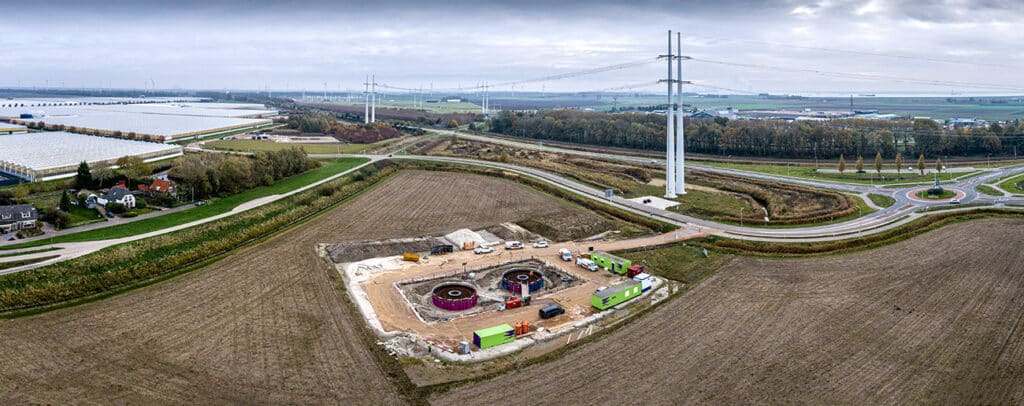
52 of 107 Wintrack locations
"The new high-voltage line consists of 107 Wintrack sites," Mark outlines. "Of these, 52 fall under the competence of SWITCH South-West, the construction consortium with Mobilis and Strukton Civil Projects. In fact, the overall connection is divided into two parcels, from Borssele to Willem-Annapolder and from Willem-Annapolder to Rilland. For the arrival of the Wintrack pylons, SWITCH South-West is doing the concrete foundations on the Willem-Annapolder - Rilland section. The other lot will be carried out by BAM Infra. TenneT is combining the new 380 kV connection with the existing connections in the Zak van Zuid-Beveland and between Willem-Annapolder and Rilland."

Pile foundations are being used, consisting of Tubex piles, Vibro piles and Fundex piles. "TenneT has chosen in the design according to the situation which pile foundation should be deployed in which place. After placing the piles, the drainage is put on them. Then the piles are dug out and the 'heads are cut.' On the piles, we first make a structural work floor that can carry the pouring load of the pile. Then we braid the pile and build formwork around it to pour the piles. Once that is done, we backfill the space around the piers with soil. Then the resulting 'mound' is made ready for VDL, which installs the Wintrack masts." together with Volker Wessels."
104 pouring foundations
There are two concrete piles per location for a Wintrack mast. "So in total we are pouring 104 piles on our plot, divided among the 52 locations. Under each pile are 32 foundation piles. Mobilis is responsible for the concrete work, with the foundation work being carried out by Voorbij and Terracon. Molhoek is involved from Strukton to do the earthwork and civil engineering work," says Mark.

Asked about daily work on the project, Mark replies, "I form the bridge between what is happening outside and TenneT. By maintaining contact with the people in the field and monitoring how everything is going, I can report back to all the constituencies and the client. There is a lot of regulation involved in this project, we are dealing with about 40 plot owners at our 52 locations alone. Each stakeholder has individual interests, some of them are arable farmers, others are fruit growers. Some of the plots are owned by TenneT itself."
Applying underwater concrete
There are situations where drainage is not possible. In such cases, Mobilis uses construction pits with underwater concrete. "Drainage is sometimes not possible in connection with freshwater bubbles. Farmers and fruit growers then worry about the groundwater level. This is when the problem-solving skills and expertise of Mobilis and Strukton come in handy. We make an excavation pit with sheet pile walls and pour underwater concrete. That takes more time, of course, but it is a perfect technical solution to the situation," Mark concludes.
Heeft u vragen over dit artikel, project of product?
Neem dan rechtstreeks contact op met Mobilis.
 Contact opnemen
Contact opnemen
